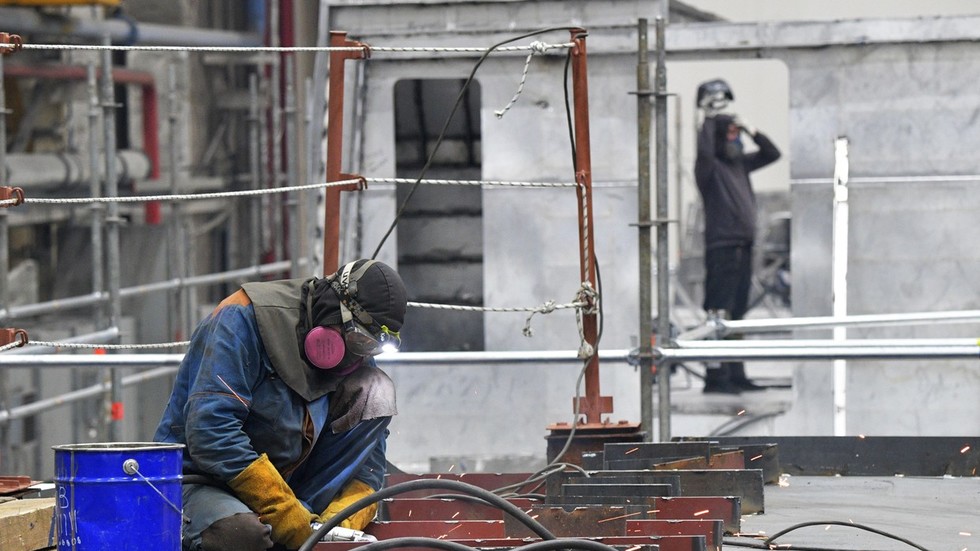
Experts from the Russian Presidential Academy of National Economy and Public Administration say new restrictions won’t stop growth

An employee in a workshop at the Sredne-Nevsky Shipyard on November 1, 2023, St. Petersburg, Russia. © Sputnik / Sputnik/Alexander Galperin
Sanctions on Russia have reached a ceiling and there is hardly anything Western nations could do that would stop Russian economic growth, researchers at a top university have said in a new study. The experts from the Russian Presidential Academy of National Economy and Public Administration (RANEPA) say new significant restrictions on Moscow are unlikely because they would carry high risks for the West itself.
Last Friday, ahead of the second anniversary of Russia’s military campaign against Ukraine, the European Union unveiled its 13th package of sanctions. The measures largely seek to close loopholes that could be exploited by the Kremlin to circumvent existing restrictions via third countries.
That same day, the US Treasury Department also announced a new round of sanctions.

In an article published on Tuesday, Vedomosti cited a recent study by several RANEPA experts, who argued that the West had already imposed the most devastating sanctions on Russia. The researchers analyzed two scenarios for the Russian economy in 2024-2026. The first envisages the almost-simultaneous lowering of the price cap for Russian oil to $50 per barrel, the introduction of a total embargo on exports to Russia, as well as secondary sanctions aimed at third countries.
However, the authors expect that even this negative scenario would not have any significant impact on the Russian economy; though the government would be required to act quickly to ensure this. While the country’s GDP growth would likely slow down to 0.3% in 2024 under such circumstances, it would then climb to 1.5% and 1.4% in the following two years.
A more optimistic scenario foresees pretty much the same measures on the part of Western nations, but spread out over time. In this case, Russia could see 2.2% growth in 2026, the experts wrote.
According to the study, the past two years have proven that the Russian economy is in better shape than originally thought, thus rendering Western sanctions less effective.
One of the article’s co-authors, Konstantin Tuzov, told Vedomosti that the West had “already thought up everything it could,” with Moscow’s economic outlook now improving thanks to cooperation with China and India.
On Monday, Euractiv, citing a study by the IESEG School of Management, reported that EU sanctions on Russia are being “massively circumvented” via third countries, such as Türkiye, the UAE, and Kazakhstan.
Earlier this month, Russian Prime Minister Mikhail Mishustin announced that the country’s economy had grown by 4% in 2023, eclipsing the 2.7% forecast by the Russian central bank in January.




